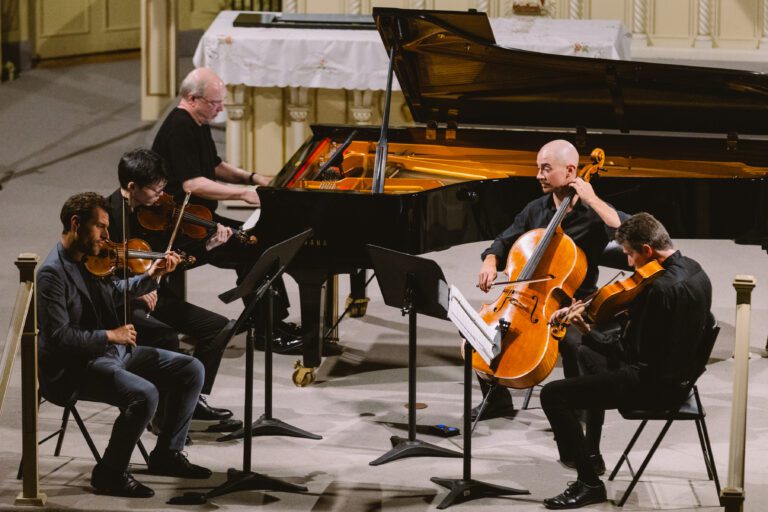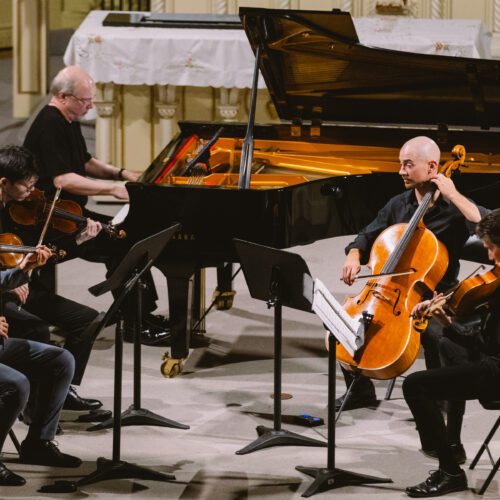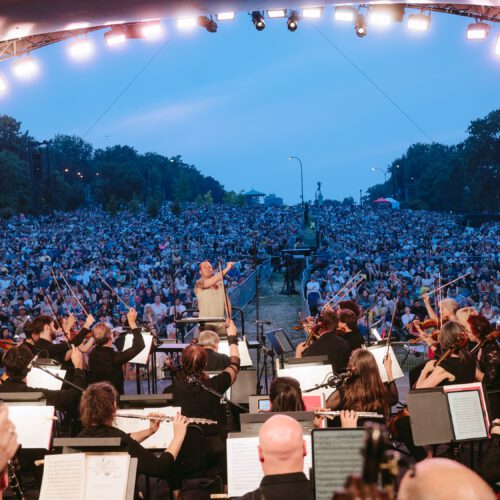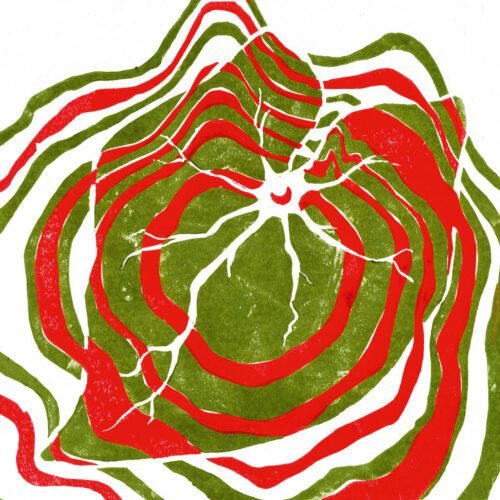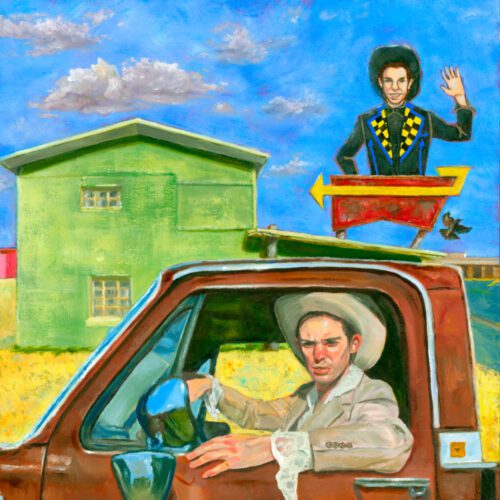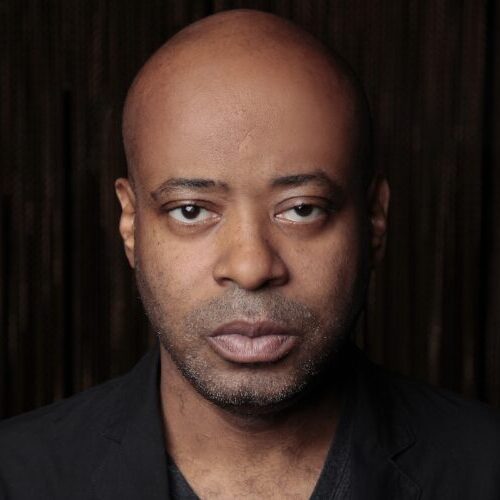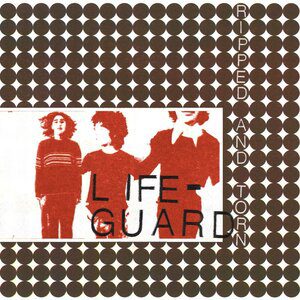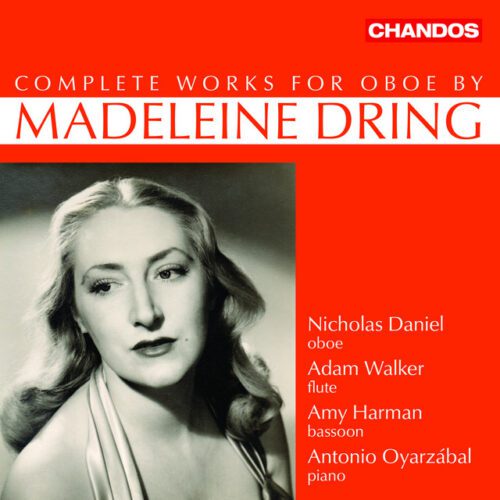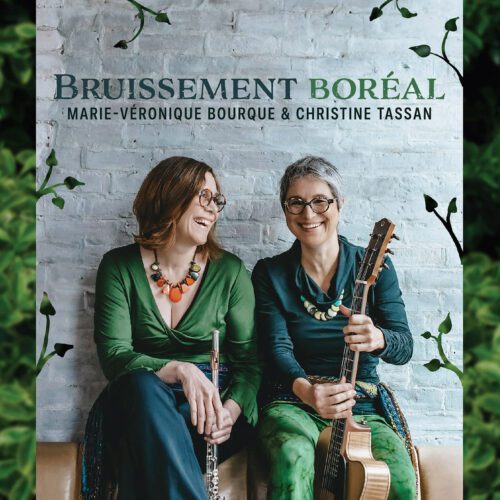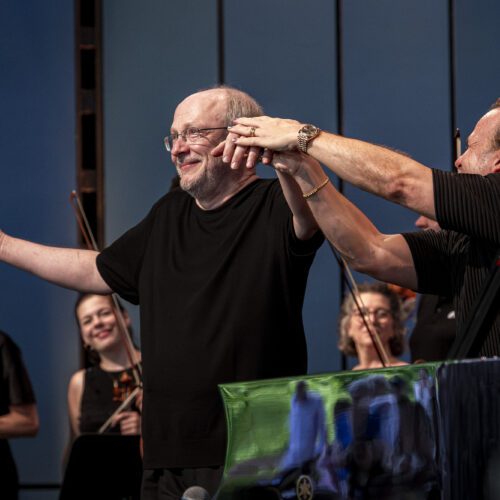After heroically saving the Orchestre Métropolitain concert last July 27th (READ MY REVIEW HERE), pianist Marc-André Hamelin last night offered the program for which he had been initially called. It was taking place at the Mascouche Church (north east of Montreal), which was very well attended for the occasion. We are delighted because the evening was beautiful.
Hamelin launched the program with a sonata by Nikolai Medtner, the one in A minor, Op. 38 No. 1, “Reminiscenza.” It’s a single-movement piece, about 15 minutes long, that skillfully blends, as is the case with Medtner, Rachmaninoff-esque romantic impulses with German contrapuntal density. This sonata is unusual in that it is part of a larger cycle of eight “forgotten melodies” (reminiscenza), hence the numerical cataloging. Op. 38 No. 1 is the most extensive of the eight, a true sonata in its own right that was strangely inserted into a thematic suite. It begins with a gentle melody with nostalgic echoes before developing into something increasingly dense and agitated, and then returning to the spirit of initial simplicity. Hamelin played it with force, although the church’s rather reverberant acoustics somewhat blurred the contours of the piece.
Next was the American Dover Quartet, formed at the Curtis Institute. The group is solid and has numerous acclaimed and award-winning recordings to their credit. The usual violist, Julianne Lee, was unable to attend, so she was replaced by Pierre Lapointe. No, of course not the one heard the day before with OM on Mount Royal, who is a popular singer in Quebec. Rather a Canadian violist born in Hull and based in Texas, who is unfortunately little known here. The poor man is almost impossible to find on the francophone web. Type in Pierre Lapointe, add “alto” or even “violin,” and the entire results page will still be taken up by the Quebec pop artist. Too bad, because he showed very good skills with the rest of the group. Technically solid, expressive, although a bit muted in terms of projection, with some exceptions.
Thus formed, the Dover Quartet launched Tchaikovsky’s captivating String Quartet No. 1 in D major, Op. 11, with a somewhat thin, almost acidic sound. For comparison, listen to the St. Lawrence playing the same entrance, this theme so powerfully linked to the Russian soul, and feel the roundness of the sound, with its wonderful dark and deep color like an abyss. I admit, I prefer this way. That said, the Dover Quartet quickly regained their composure and delivered a very lyrical performance, particularly in the superb (and extremely famous) Andante cantabile, and in the Finale, which was also imbued with convincing vital energy. The last two chords could have been a bit better held, less rushed, but the audience went for a bathroom break happily humming the unforgettable theme.
The main piece was César Franck’s Piano Quintet in F minor, FWV 7, which brought together Hamelin and the quartet. The quintet is a powerful construction, with passages that give you chills. I’m thinking especially of the second movement, with its sublime chords imbued with poignant spirituality, even transcendent mysticism. Not all string quartets manage to recreate that moment in its emotional intensity. Not all pianists join in with the necessary delicacy. That was the case yesterday, and therefore a very beautiful moment of music. The final movement was performed with effective feverishness, driven by precise articulations, although, once again, somewhat blurred by the resonant vastness of the space. It makes me want to recommend a comparison (if you were present and can make it) : go listen to the same Marc-André Hamelin, with a four-star quartet (Joshua Bell, Pamela Franck, Nobuko Imai, and Steven Isserlis) in a recording captured live at Verbier: the clarity of the voices is remarkable, as is the dramatic intent of the writing, in a sound recording that is much clearer than the in-situ projection at the Mascouche church. A noticeable difference.
Nevertheless, the expressive fire and quality of playing of the five musicians on stage gave the audience present an excellent concert of high-quality music. A heartfelt ovation was given, and rightly so.
